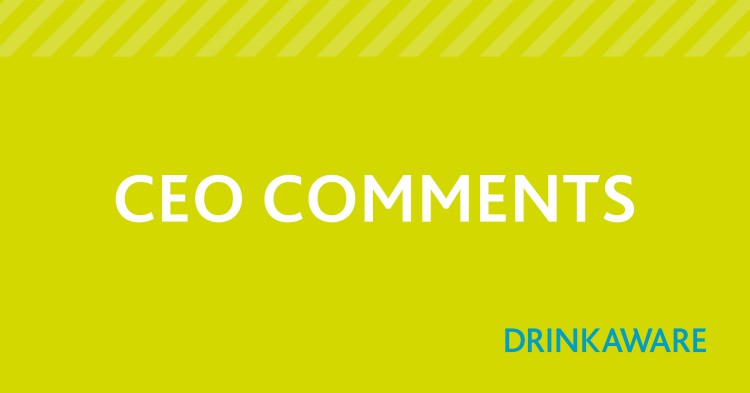Robert de Niro is quoted as saying “The talent is in the choices”. A truism for sure, but is it a talent we can nurture, and how can we make better choices?
This is one of the fundamental questions that we at Drinkaware are always trying to answer.
You see the thing about choice is that it’s not always rational. There are layers of influence that affect our choices and a sound rationale doesn’t always come into it.
Take for example our preference for the familiar. People like the things that they know, and are wary of the things they don’t. Change, more often than not, feels uncomfortable. Change can also feel like a loss – human nature dictates that a perceived loss can often outweigh a perceived gain. Which somewhat explains why, even when we know something might be good for us, we choose not to change our behaviour, and continue to smoke, eat too much, drink too much, etc.
People are more comfortable with the familiar, and swayed by social norms, susceptible to ‘group think’ and by the ‘herd mentality’. This isn’t as simplistic as people being sheep or shallow, rather it’s about the human condition being averse to the ambiguous. We like and indeed need, to reduce uncertainty. So for instance, if the typical social occasion includes alcohol, it can be hard to imagine what such an event might look like without drink. The norm is the default and therein lies one of the many barriers to behaviour change.
Time plays its part in the choices made also, with the preference being for a minimal time lag. People like to reap the benefits in the short term, so they can grasp the value of the ‘here and now’ or the imminent, whereas the longer term benefits are typically harder to perceive and consequently, less tangible or ‘real’ and in turn, less attractive.
The same choice logic follows for any longer term dis-benefits – say for example, alcohol harm. A negative longer term effect isn’t an especially persuasive message, and at Drinkaware we have found that even when such a message is acknowledged, it is not necessarily acted upon.
Along with all of this, is the human predisposition to innate biases, in particular optimism bias and confidence bias, which are amplified further by what’s known as the empathy gap i.e. when we’re enjoying something now, we find it hard to imagine the harm that may come later, or you could say we choose to ignore it. We frame what we tell ourselves to fit our choices.
At the end of the day, people want to make good choices. So much goes into each and every choice but not every element is conscious, and that is what makes behavioural change so difficult. That is also why the context and the social narrative are all so important. And that is why Drinkaware actively listens, engages and seeks to shape both and deliver our public mandate to provide trusted information on alcohol to help people make better choices.


